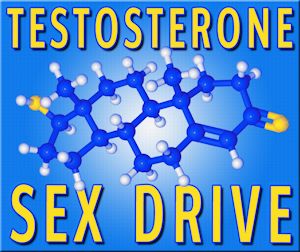Introduction to Endocrinology and Weight
Endocrinology, the study of hormones and their actions, plays a pivotal role in the regulation of body weight. For American males, understanding this connection is crucial for effective weight management. Hormones such as insulin, leptin, and testosterone not only influence metabolism but also impact appetite and fat distribution. This article explores how endocrinological factors contribute to weight issues and outlines strategies for managing weight effectively.
The Role of Hormones in Weight Regulation
Hormones are chemical messengers that govern various bodily functions, including weight regulation. Insulin, produced by the pancreas, helps cells absorb glucose from the bloodstream. When insulin levels are high, it can lead to fat storage, contributing to weight gain. Leptin, known as the satiety hormone, signals the brain when the body has had enough to eat. However, resistance to leptin can disrupt this signal, leading to overeating and obesity. Testosterone, a key male hormone, also affects weight by influencing muscle mass and fat distribution. Lower levels of testosterone can result in increased body fat, particularly around the abdomen.
Common Endocrine Disorders Affecting Weight
Several endocrine disorders can significantly impact weight in American males. Hypothyroidism, where the thyroid gland does not produce enough thyroid hormones, can slow metabolism and lead to weight gain. Similarly, Cushing's syndrome, characterized by high levels of cortisol, can cause central obesity. Polycystic Ovary Syndrome (PCOS), though more common in females, can also affect males and lead to weight gain due to insulin resistance. Recognizing these conditions early and managing them appropriately is essential for maintaining a healthy weight.
Strategies for Weight Management
Effective weight management for American males involves a multifaceted approach that addresses both lifestyle and hormonal factors. A balanced diet rich in whole foods, lean proteins, and healthy fats can help stabilize blood sugar levels and reduce insulin resistance. Regular physical activity, including both aerobic exercises and strength training, can boost metabolism and increase testosterone levels. Additionally, managing stress through techniques such as meditation or yoga can help lower cortisol levels, which in turn can aid in weight control.
The Importance of Medical Intervention
In some cases, medical intervention may be necessary to manage weight effectively. Medications that improve insulin sensitivity or thyroid function can be beneficial. Hormone replacement therapy might be considered for males with low testosterone levels. It is important for American males to consult with healthcare professionals to determine the most appropriate treatment plan tailored to their specific needs.
Lifestyle Adjustments for Long-term Success
Long-term weight management requires sustainable lifestyle adjustments. American males should focus on creating a supportive environment that encourages healthy eating and regular exercise. This might involve meal planning, joining a fitness group, or seeking support from friends and family. Additionally, regular monitoring of weight and hormonal levels can help track progress and make necessary adjustments to the management plan.
Conclusion: Empowering American Males in Weight Management
Understanding the intricate relationship between endocrinology and weight is crucial for American males striving to manage their weight effectively. By addressing hormonal imbalances and adopting a holistic approach to health, men can achieve and maintain a healthy weight. Empowering oneself with knowledge and seeking appropriate medical guidance are key steps toward achieving long-term success in weight management.
Contact Us Today For A Free Consultation

- Hormonal Imbalances and Sleep Disorders: Impact on American Men's Health and Interventions [Last Updated On: March 7th, 2025] [Originally Added On: March 7th, 2025]
- Vitamin D's Crucial Role in Endocrine Health for American Males [Last Updated On: March 16th, 2025] [Originally Added On: March 16th, 2025]
- Endocrinology's Role in Managing Chronic Fatigue in American Males [Last Updated On: March 17th, 2025] [Originally Added On: March 17th, 2025]
- Dietary Strategies for Enhancing Endocrine Health in American Men [Last Updated On: March 19th, 2025] [Originally Added On: March 19th, 2025]
- Hormonal Changes in Aging American Men: Impacts and Management Strategies [Last Updated On: March 19th, 2025] [Originally Added On: March 19th, 2025]
- Endocrine Health and Cancer Risk in American Men: A Comprehensive Analysis [Last Updated On: March 19th, 2025] [Originally Added On: March 19th, 2025]
- Autoimmune Endocrine Disorders in Males: Symptoms, Diagnosis, and Treatment Strategies [Last Updated On: March 19th, 2025] [Originally Added On: March 19th, 2025]
- PCOS in Transgender Men: Diagnosis, Management, and Holistic Care Approaches [Last Updated On: March 20th, 2025] [Originally Added On: March 20th, 2025]
- Endocrine Disruptors: Impact on American Male Health and Mitigation Strategies [Last Updated On: March 21st, 2025] [Originally Added On: March 21st, 2025]
- Lifestyle Impacts on Endocrine Health: A Guide for American Men [Last Updated On: March 21st, 2025] [Originally Added On: March 21st, 2025]
- Hormonal Optimization in Sports: Enhancing Performance Ethically for American Male Athletes [Last Updated On: March 21st, 2025] [Originally Added On: March 21st, 2025]
- Male Infertility and Endocrinology: Understanding Hormonal Impacts on Fertility [Last Updated On: March 21st, 2025] [Originally Added On: March 21st, 2025]
- Gout in American Males: Endocrine Influences and Management Strategies [Last Updated On: March 22nd, 2025] [Originally Added On: March 22nd, 2025]
- Endocrinology's Impact on Sexual Health in American Males: Hormones, Dysfunction, and Holistic Care [Last Updated On: March 22nd, 2025] [Originally Added On: March 22nd, 2025]
- Hormonal Imbalances and Kidney Health: Critical Insights for American Men [Last Updated On: March 23rd, 2025] [Originally Added On: March 23rd, 2025]
- Endocrine Health and Mental Well-being: A Comprehensive Guide for American Males [Last Updated On: March 23rd, 2025] [Originally Added On: March 23rd, 2025]
- Alcohol's Impact on Endocrine System in American Males: A Comprehensive Analysis [Last Updated On: March 23rd, 2025] [Originally Added On: March 23rd, 2025]
- Hormonal Influences on Joint Health in American Men: A Comprehensive Guide [Last Updated On: March 23rd, 2025] [Originally Added On: March 23rd, 2025]
- Hormonal Impacts on Men's Immune Health in the U.S.: Insights and Strategies [Last Updated On: March 24th, 2025] [Originally Added On: March 24th, 2025]
- Endocrine-Neurological Interplay in American Men: Diagnosis, Management, and Future Research [Last Updated On: March 24th, 2025] [Originally Added On: March 24th, 2025]
- Hormonal Imbalances and Their Role in Managing Male Depression in America [Last Updated On: March 24th, 2025] [Originally Added On: March 24th, 2025]
- Managing Endocrine Disorders in American Men with Autoimmune Diseases: A Comprehensive Guide [Last Updated On: March 24th, 2025] [Originally Added On: March 24th, 2025]
- Hormonal Dynamics and Skin Health in American Men: Androgens, Acne, Aging, and Lifestyle [Last Updated On: March 24th, 2025] [Originally Added On: March 24th, 2025]
- Endocrine Health and Prostate Cancer: Insights for American Men [Last Updated On: March 25th, 2025] [Originally Added On: March 25th, 2025]
- Managing Endocrine Disorders and Heart Disease in American Men: Strategies and Insights [Last Updated On: March 25th, 2025] [Originally Added On: March 25th, 2025]
- Exercise Impacts on Endocrine Function in American Males: Hormonal Health Benefits [Last Updated On: March 25th, 2025] [Originally Added On: March 25th, 2025]
- Endocrine Disorders in Men: Impact on Skin Health and Management Strategies [Last Updated On: March 25th, 2025] [Originally Added On: March 25th, 2025]
- Managing Type 2 Diabetes in American Men: Endocrine Insights and Strategies [Last Updated On: March 25th, 2025] [Originally Added On: March 25th, 2025]
- Endocrine System and Liver Health in American Males: A Comprehensive Analysis [Last Updated On: March 25th, 2025] [Originally Added On: March 25th, 2025]
- Endocrine and Gastrointestinal Health Management Strategies for American Men [Last Updated On: March 25th, 2025] [Originally Added On: March 25th, 2025]
- Hormonal Influences on Muscle Health in American Males: A Comprehensive Overview [Last Updated On: March 25th, 2025] [Originally Added On: March 25th, 2025]
- Endocrine Health's Impact on Respiratory Function in American Males: A Comprehensive Overview [Last Updated On: March 25th, 2025] [Originally Added On: March 25th, 2025]
- Exploring ADHD and Endocrinology: Hormonal Imbalances and New Treatment Avenues [Last Updated On: March 26th, 2025] [Originally Added On: March 26th, 2025]
- Exploring Endocrinological Interventions for PTSD in American Males [Last Updated On: March 26th, 2025] [Originally Added On: March 26th, 2025]
- Endocrinology's Role in Managing Insomnia Among American Males [Last Updated On: March 26th, 2025] [Originally Added On: March 26th, 2025]
- Endocrinology's Vital Role in Treating Male Eating Disorders in the U.S. [Last Updated On: March 26th, 2025] [Originally Added On: March 26th, 2025]
- Stress Impact on Male Endocrine Health: Hormones and Holistic Management Strategies [Last Updated On: March 26th, 2025] [Originally Added On: March 26th, 2025]
- Smoking's Impact on Endocrine Health in American Men: Testosterone, Thyroid, and More [Last Updated On: March 26th, 2025] [Originally Added On: March 26th, 2025]
- Hormonal Imbalances and Hearing Loss in American Males: Causes and Prevention [Last Updated On: March 27th, 2025] [Originally Added On: March 27th, 2025]
- Hormonal Imbalances and Foot Health: A Guide for American Men [Last Updated On: March 27th, 2025] [Originally Added On: March 27th, 2025]
- Caffeine's Impact on Endocrine Health in American Males: Cortisol, Insulin, Testosterone, Thyroid [Last Updated On: March 27th, 2025] [Originally Added On: March 27th, 2025]
- Endocrine Health and Vision: Insights for American Males [Last Updated On: March 27th, 2025] [Originally Added On: March 27th, 2025]
- Hormonal Fluctuations and Oral Health in American Men: Insights and Recommendations [Last Updated On: March 28th, 2025] [Originally Added On: March 28th, 2025]
- Hormonal Hair Loss in American Men: Causes, Treatments, and Future Research [Last Updated On: March 28th, 2025] [Originally Added On: March 28th, 2025]
- Hormonal Imbalances and Male Anxiety: Endocrinological Insights and Treatments in the USA [Last Updated On: March 28th, 2025] [Originally Added On: March 28th, 2025]
- Sleep's Impact on Endocrine Health: Key Hormones and Practical Sleep Improvement Tips for American Males [Last Updated On: March 28th, 2025] [Originally Added On: March 28th, 2025]
- Endocrine System's Impact on Digestive Health in American Males: A Comprehensive Overview [Last Updated On: March 28th, 2025] [Originally Added On: March 28th, 2025]
- Nutrition's Impact on Endocrine Health in American Males: Key Nutrients and Diets [Last Updated On: March 29th, 2025] [Originally Added On: March 29th, 2025]
- Endocrine Health and Nail Changes in American Males: A Vital Connection [Last Updated On: March 29th, 2025] [Originally Added On: March 29th, 2025]
- Endocrinological Approaches Enhance Bipolar Disorder Treatment in American Men [Last Updated On: March 30th, 2025] [Originally Added On: March 30th, 2025]
- Endocrine Disorders and Eye Health: Management Strategies for American Men [Last Updated On: March 31st, 2025] [Originally Added On: March 31st, 2025]
- Endocrine Health and Hand Conditions in American Males: Insights and Management [Last Updated On: April 1st, 2025] [Originally Added On: April 1st, 2025]
- Endocrine Disorders and Ear Health: A Comprehensive Guide for American Men [Last Updated On: April 1st, 2025] [Originally Added On: April 1st, 2025]
- Hormonal Fluctuations and Nasal Health in American Men: Symptoms and Management [Last Updated On: April 1st, 2025] [Originally Added On: April 1st, 2025]
- Hydration's Crucial Role in Endocrine Health for American Males [Last Updated On: April 3rd, 2025] [Originally Added On: April 3rd, 2025]
- Endocrine Health and Throat Conditions in American Males: Hormonal Impacts and Management [Last Updated On: April 5th, 2025] [Originally Added On: April 5th, 2025]
- Schizophrenia in Males: The Role of Endocrinology in Treatment and Management [Last Updated On: April 6th, 2025] [Originally Added On: April 6th, 2025]
- Managing Endocrine Disorders in American Men with Lung Conditions: An Endocrinological Approach [Last Updated On: April 6th, 2025] [Originally Added On: April 6th, 2025]
- Dietary Supplements' Impact on Endocrine Health in American Males: A Comprehensive Analysis [Last Updated On: April 8th, 2025] [Originally Added On: April 8th, 2025]
- Hormonal Balance and Heart Health: A Guide for American Men [Last Updated On: April 9th, 2025] [Originally Added On: April 9th, 2025]
- Exploring Hormonal Influences on Autism in American Males: Endocrine Insights and Therapies [Last Updated On: April 10th, 2025] [Originally Added On: April 10th, 2025]
- Endocrine System's Impact on Blood Health in American Males: Hormones, Disorders, and Management [Last Updated On: April 10th, 2025] [Originally Added On: April 10th, 2025]
- Mental Health's Impact on Endocrine Function in American Males: An Integrated Approach [Last Updated On: April 11th, 2025] [Originally Added On: April 11th, 2025]
- Exploring Endocrine Approaches to Treating OCD in American Males [Last Updated On: April 11th, 2025] [Originally Added On: April 11th, 2025]
- Endocrine and Nerve Health in American Males: Hormones, Disorders, and Lifestyle Impact [Last Updated On: April 11th, 2025] [Originally Added On: April 11th, 2025]
- Managing Endocrine Disorders in American Men with Kidney Disease: A Comprehensive Guide [Last Updated On: April 13th, 2025] [Originally Added On: April 13th, 2025]
- Hormonal Balance and Brain Health in American Men: Endocrinology Insights [Last Updated On: April 13th, 2025] [Originally Added On: April 13th, 2025]
- Hormonal Influences on Skin Health in American Men: A Comprehensive Guide [Last Updated On: April 15th, 2025] [Originally Added On: April 15th, 2025]
- Managing Endocrine Disorders in Men with Muscle Conditions: A Comprehensive Guide [Last Updated On: April 16th, 2025] [Originally Added On: April 16th, 2025]
- Exploring Endocrine Therapy for Managing ADD Symptoms in American Males [Last Updated On: April 16th, 2025] [Originally Added On: April 16th, 2025]
- Endocrinology's Crucial Role in Treating Male Eating Disorders in the USA [Last Updated On: April 16th, 2025] [Originally Added On: April 16th, 2025]
- Endocrine Disorders and Heart Health: Management Strategies for American Men [Last Updated On: April 17th, 2025] [Originally Added On: April 17th, 2025]
- Lifestyle Choices Impact Endocrine Health in American Males: Diet, Exercise, Stress, Sleep, Substance Abuse [Last Updated On: April 17th, 2025] [Originally Added On: April 17th, 2025]
- Aging and Endocrine Function in American Males: Impacts and Management Strategies [Last Updated On: April 17th, 2025] [Originally Added On: April 17th, 2025]
- Endocrine Health and Liver Function: Impacts on American Males' Wellness [Last Updated On: April 19th, 2025] [Originally Added On: April 19th, 2025]
- Hormonal Influences on Bone Health in Aging American Men [Last Updated On: April 19th, 2025] [Originally Added On: April 19th, 2025]
- Endocrine Health's Impact on Joint Function in American Males: Hormonal Connections [Last Updated On: April 19th, 2025] [Originally Added On: April 19th, 2025]
- Endocrinology's Impact on Male Health: Hormones, Aging, and Wellness [Last Updated On: April 21st, 2025] [Originally Added On: April 21st, 2025]
- Thyroid Health in American Men: Understanding Disorders, Symptoms, and Management [Last Updated On: April 22nd, 2025] [Originally Added On: April 22nd, 2025]
- Diabetes Management in American Males: Role of Endocrinologists and Tailored Plans [Last Updated On: April 23rd, 2025] [Originally Added On: April 23rd, 2025]
Word Count: 533





















